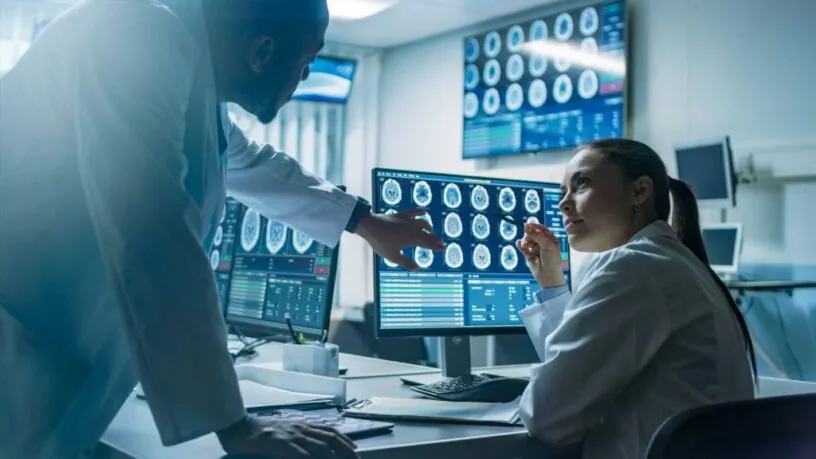How Technology is Transforming Clinical Endpoint Adjudication

When clinical endpoints are subjective, image-based, or complex to assess, or the study is geographically broad, researchers of new drugs and devices may find it difficult to demonstrate acceptable safety results to regulatory authorities.
To meet this requirement, trial sponsors and contract research organizations (CROs) are turning to clinical endpoint committees (CEC) for independent event adjudication as the most efficient process to help reduce costs, increase quality, and eliminate clinical bias. CECs reduce variability in adjudicated outcomes since the physicians selected to perform these assessments are often experts in the event type and apply a consistent, standardized approach to the assessment.
There are several ways to implement and manage a CEC. However, traditional manual, paper-based approaches to CEC management place significant time, cost, and resource burdens on organizations—and are prone to errors, bias, and regulatory issues.
Some endpoint adjudication processes still use manual procedures to collect critical documents from sites or provide them to the CEC, including using physical mail or email. These are not secure methods for distributing documents and don’t allow you to track the full chain of custody. Documents could get lost or misplaced, causing extra work for sites.
In addition, these trials require that documents and medical images are free of protected health information (PHI), which can be difficult and challenging when manual processes are used. In some instances, sites that don’t have access to redaction tools may have to print documents and perform redaction using a Sharpie, which is manual and time-consuming.
Even if you’re already using a technology solution to manage your endpoint adjudication process, the software might not allow full visibility into where those events are in the adjudication process, which can lead to missed events and also delays in adjudicating events. On top of that, technology solutions can have extremely long implementation timelines and lack integration with other key systems like EDC.
It’s critical to ensure no event is missed, and when solutions are not integrated with an EDC solution, it leads to very manual reconciliation procedures to ensure every event is accounted for. These challenges prevent critical events from being adjudicated in a timely manner. Lack of control, disconnected processes, and disparate datasets can even lead to compliance concerns, especially when you’re not able to easily track where events are in the process and verify that every event has been accounted for.
Using an Endpoint Adjudication System (EAS) is critical to ensure all events are accounted for and to maintain full end-to-end control of the process. A good technology solution gives you control over your timelines and allows you to configure your own trials. It also allows you to standardize what data is collected, how documents and images are QCed and organized, and also how the data is presented to the CEC. A robust solution is also 21CFR Part 11 compliant with audit trails, electronic signatures, and other features that meet regulatory requirements.
Real-time visibility is also critical to ensure events are moving through the process efficiently and to ensure you have real-time access to outcome results. A well-rounded solution allows flexibility with your independent review design and allows users to complete their reviews remotely, without the need to download or install software to view documents and images. Finally, a good solution is also easy to use for all key stakeholders including sites that are uploading data as well as the event committee members performing the assessments.
As with many other areas of clinical research, innovative new technologies, including Medidata Adjudicate—when combined with scientific and medical expertise—remove these barriers and drive significant gains in efficiency, accuracy, data quality, and compliance.
Webcast: How Technology is Transforming Clinical Endpoint Adjudication
Watch our webcast now to learn from experts on how technology can transform clinical endpoint adjudication, the keys to successful implementation, the must-haves when selecting the right solution, and how it fits into the regulatory landscape. Plus, see how Medidata Adjudicate connects your trials, sites, and CECs with advanced adjudication solutions.
Contact Us
